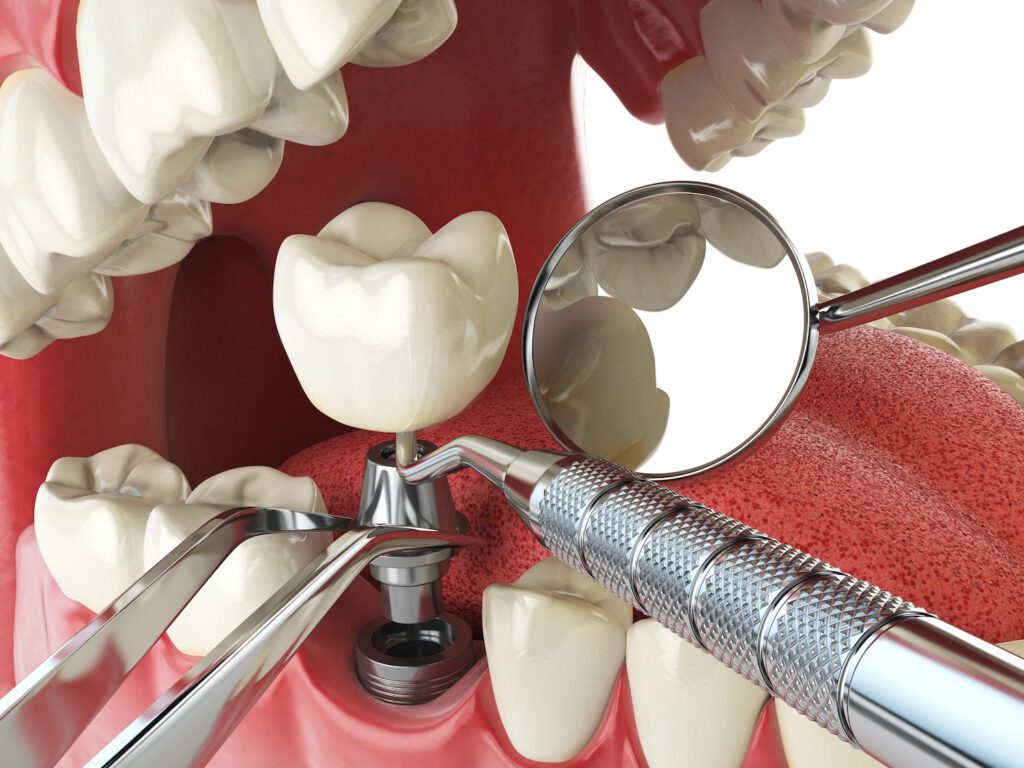Dental implants offer a long-term solution for missing teeth. They provide a stable foundation for replacement teeth. Many people find dental implants improve their quality of life. But, are they right for you? This blog post will explore the benefits and considerations of dental implants.

Who Can Benefit From Dental Implants?
Dental implants benefit those with missing teeth. They can help if you have one missing tooth or several. Implants also work well for those who wear dentures. They could provide a more secure and comfortable fit. If you have difficulty chewing or speaking due to missing teeth, implants may help. People who have lost teeth due to injury, decay, or periodontal disease can also benefit. Dental implants could restore both function and aesthetics. They help maintain the structure of your jawbone and prevent further bone loss. This is crucial for maintaining facial structure and overall oral health.
Advantages
Dental implants often look and feel like natural teeth. They could improve speech and comfort. Unlike dentures, implants do not slip or cause discomfort. This allows you to speak clearly and confidently. Implants also allow you to eat your favorite foods. You can chew with confidence and enjoy a varied diet. They offer durability and can last many years. Proper care ensures their longevity. Unlike other dental prosthetics, implants do not require special adhesives or cleaning solutions. Regular brushing and flossing are sufficient for maintaining them. This makes them a convenient and low-maintenance option.
Improved Oral Health
Implants do not require altering nearby teeth. This often preserves your natural teeth. Traditional bridges typically require the grinding down of adjacent teeth. Implants eliminate this need, preserving your natural tooth structure. Implants could also help prevent bone loss. The jawbone needs stimulation to stay healthy. When a tooth is lost, the bone in that area begins to deteriorate. Implants provide this stimulation.
Considerations Before Getting Treatment
Dental implants require a healthy jawbone. Sufficient bone density is crucial. Your dentist will evaluate your oral health. They will check for any underlying conditions. Gum disease or diabetes may affect your eligibility. A thorough examination ensures the best outcome. Certain lifestyle factors can also impact the success of dental implants. Smoking, for example, can interfere with the healing process. It’s essential to discuss these factors with your dentist. They can provide guidance on how to prepare for the procedure.
Post-Procedure Care
Proper care is essential after getting Implants. Maintain good oral hygiene. Brush and floss regularly. Visit your dentist for check-ups. Avoid hard or sticky foods. Follow your dentist’s instructions for the best results. It’s also important to monitor the implant site for any signs of infection. Redness, swelling, or discomfort should be reported to your dentist. Regular dental visits will help ensure the implant remains in good condition. Your dentist can provide additional care tips tailored to your needs.
Cost
Implants can be costly. The price varies based on several factors. These include the number of implants and the complexity of the procedure. Some insurance plans may cover part of the cost. Discuss payment options with your dentist. Financing options are often available. Many dental offices offer payment plans to make the procedure more affordable. It’s important to consider the long-term benefits of dental implants. While the initial cost may be high, the durability and convenience they offer can make them a worthwhile investment.
If you’re missing teeth, dental implants may be able to help. Contact our office today to schedule a consultation and learn more about implant dentistry.

